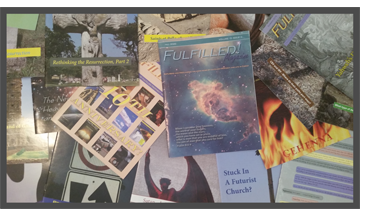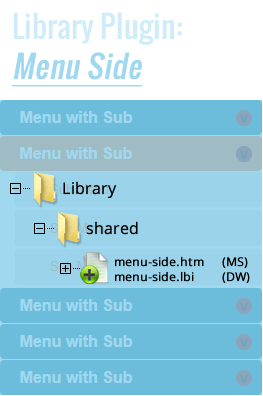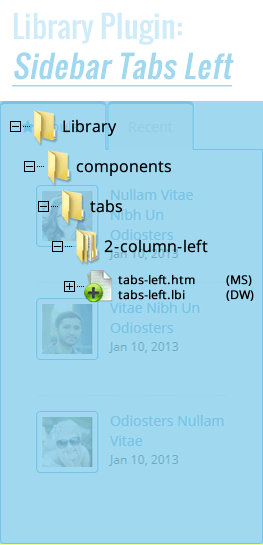Left Sidebar Page
sidemenu, tabs and content
Article Submission Guidelines
Site Menu
-
Fulfilled! 2025 Summer issue online!June 10, 2025
-
New Sign-up Form for online readersMarch 21, 2021
-
Comment on articles! (scroll to end of article)Oct. 15, 2020
-
New Web Site!Oct. 15, 2020
-
Mission StatementOct. 15, 2020
-
Reader BewareOct. 15, 2020
Our Mission:
Exploring and
proclaiming the good news of fulfilled
prophecy and life in Christ, equipping
and encouraging everyone in our journey
toward biblical truth, enabling each of
us to better discern and develop our
roles in the kingdom of God.
How to submit articles for publication in Fulfilled! Magazine

Readers of Fulfilled! Magazine appreciate reading the various perspectives presented within its pages, as well as being introduced to new preterist authors, speakers, bloggers, etc. However, the magazine does have a certain focus (eschatology in general, and preterism specifically), and the board of directors realize that there must be some boundaries regarding content. The board of directors has agreed to the following boundaries for article publication.
Contributing authors to Fulfilled! Magazine affirm the following:
1. Belief in the inspiration of Scripture
2. Belief in the Trinity
3. Belief in the deity of Christ
4. They don't hold to universalism
5. They don't hold to the “Israel Only” view of prophecy
6. They believe there is an afterlife at least for the righteous after physical death
7. The author affirms that the article is his / her original work, and any inclusion of others’ work is properly credited.
Inspiration of Scripture, the Trinity, the deity of Christ
While each of these topics is debated within Christianity in general and/or preterism specifically, our ministry is to explore and proclaim fulfilled prophecy (preterism). Therefore, our focus is not on defending the inspiration of Scripture, the Trinity, or the deity of Christ. There are many other ministries that address those issues.
Universalism, “Israel Only,” no afterlife
Although the topics of universalism, “Israel Only,” and no afterlife are more germane to eschatology, and thus preterism, we believe that these positions are not supported by Scripture. There are many nuances and details within preterism. Therefore, while we often present differing preterist views in the magazine, we feel that we must have some boundaries. These are the boundaries with which we are currently comfortable. There are other venues/ministries which engage these views.
At the risk of oversimplifying the issue, if we hold to eternal conscious torment or annihilationism, and it turns out that everyone spends eternity with God (universalism), then all’s well that ends well. On the other hand, if we promote universalism, and eternal conscious torment or annihilationism turn out to be the truth of the matter, things don’t end so well for those who falsely embraced universalism.
Likewise, if all Bible prophecy was for national Israel only, and post-AD 70 there is no sin, salvation, or relationship with God, and/or there is no afterlife in the spiritual realm (at least for believers), then all of our studying and quibbling over what the Bible actually teaches, and how we apply it to our lives, is simply a hobby at best, an exercise in futility at worst.
While we reserve the right to print or post informational content on any one of these views, at this time FCG will not be a platform for exploring them. We understand that proponents of each of these views have arguments and what they deem is scriptural support, and we are not passing judgment on anyone. However, we cannot address every debated topic within preterism, let alone Christianity at large, and have therefore established these boundaries. There may come a time when we engage these topics, but for now they lay outside of our boundaries.
Additionally, we ask new contributors to have another preterist with whom we are familiar vouch for them. This would be someone like Ed Stevens, Don Preston, William Bell, Tony Denton, TJ Smith, Chuck Coty, Adam Maarschalk, Allyn Morton, Charles Meek, David Curtis, Kurt Simmons, Jerel Kratt, Robert Cruickshank Jr., Daniel Harden, Michael Sullivan, etc. Please have that person email the editor (editor@fulfilledcg.com) directly with their endorsement. The purpose for this is simply to avoid printing/posting material from someone who is clearly not conducting themselves in a Christ-like manner. It is not our intention to act as “sanctification police,” for we all fall short of the mark. We simply want to avoid printing what may be an excellent article by someone who habitually robs banks on the weekend, to use an extreme example.
Due to the limited space available in the magazine, articles are typically 1,500-2,500 words in length. Longer articles may be considered if they can be broken into separate parts, creating a series over subsequent issues. These details should be discussed with the editor in advance.
All articles are edited for style, grammar, syntax, clarity, and accuracy.
Style: FCG has style parameters that we use to maintain consistency throughout the magazine (e.g., what is capitalized, how books of the Bible are abbreviated, etc.).
Grammar and syntax: Grammar is the set of rules that governs language, while syntax is the arrangement of words in a sentence. We offer suggested edits to improve both, aiming for a polished document. Unfortunately, some readers will turn a deaf ear to the message simply because it was communicated poorly, and it is our goal to prevent this from happening.
Clarity: Just because a sentence (or paragraph) may be grammatically correct does not mean that the author’s meaning has been understood properly. The text may be interpreted in more than one way. During the editing process, we may ask for clarification on certain statements.
Accuracy: Although we cannot chase down every quote or reference, we strive to ensure that the document is accurate. That doesn't mean that readers will necessarily agree with the premise set forth, but we want the content presented to be accurate.
Lastly, but perhaps most importantly, we ask that articles are written with a tone of grace. The very focus of the magazine results in many articles dealing with perceived flaws, errors, and shortcomings in others’ theology. We ask that you do so in a gracious and Christ-like manner, not forgetting that we formerly may have held some of those very views!
We give the author the final say in the article’s suggested edits. Our intent is not to turn your article into our article or conform your writing style to ours. We simply ask that you consider our editing suggestions. If we have questions about the exact meaning of a statement, we assume that other readers will as well.
For further information, please contact the editor at editor@fulfilledcg.com
 Fulfilled
Fulfilled



